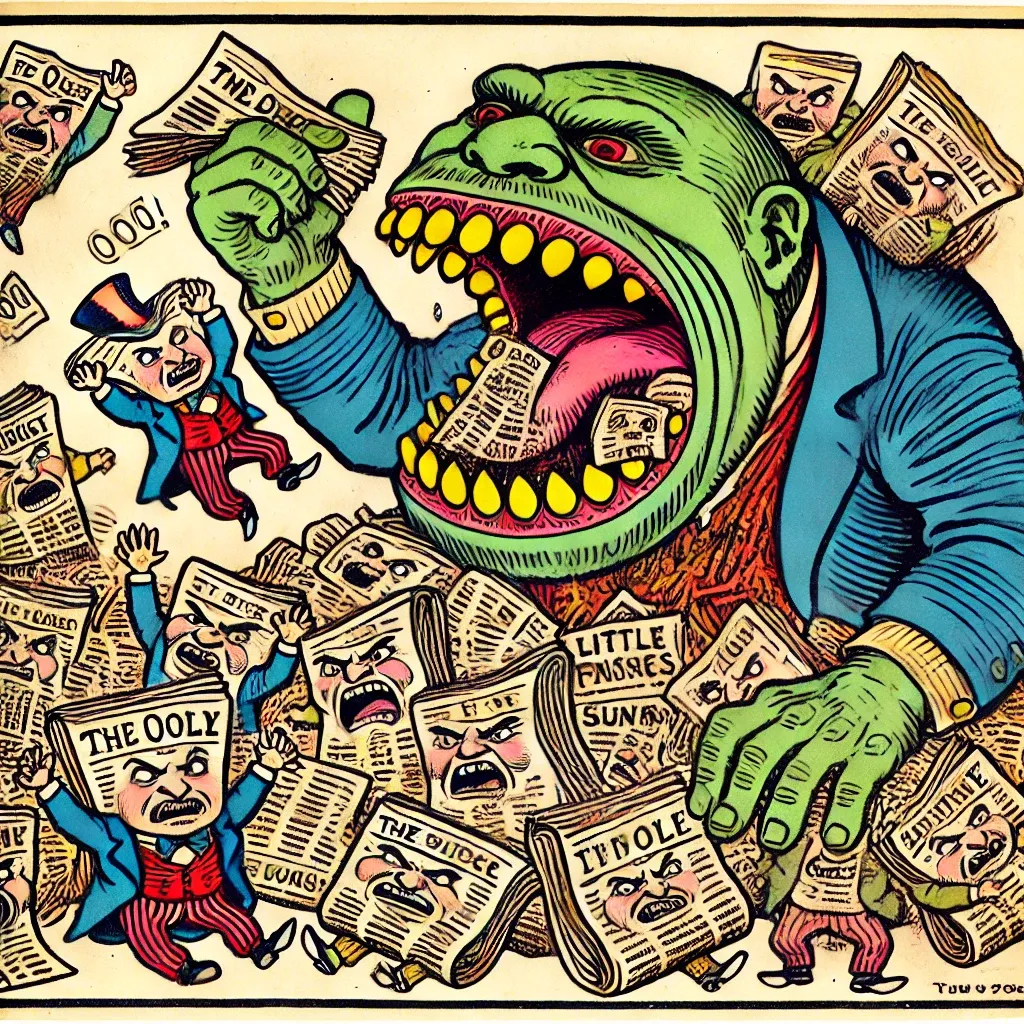Cookies Are Back, Alexa $inkhole, Pubs Attack AIOs

Google Abandons Cookie Deprecation
A mixture of UK regulatory objections and ad-industry inertia/resistance has prompted Google to abandon third party cookie deprecation, after multiple delays and deferred deadlines. In a blog post Google said, "[W]e recognize this transition requires significant work by many participants and will have an impact on publishers, advertisers, and everyone involved in online advertising." Instead, Google says it will offer Chrome users more choice: "we would introduce a new experience in Chrome that lets people make an informed choice that applies across their web browsing." Many industry groups and publishers didn't like Google's Privacy Sandbox and the UK Competition and Markets Authority believed that it would expand Google's control over online advertising. Google's vague statement about user choice doesn't give us any indication of how user-friendly cookie controls will be. If the browser settings are global it's likely a majority will reject tracking (see iPhone "ask app not to track"). But it remains to be seen how easy it is for users to exercise control. In Europe, every site has a cookie choice pop-up/banner that can be quite cumbersome to engage with, leading some people simply to "accept all."

Our take:
- Apple is running a national ad campaign on behalf of Safari, but it's equally an anti-Chrome campaign. Privacy is the message.
- Chrome is the dominant browser globally – Google has leveraged its position in search to make it so – but not on the iPhone, where it trails Safari.
- Google has been trying to migrate more users from Safari to Chrome and its search app, mostly unsuccessfully.
Alexa a $inkhole for Amazon
When Amazon announced the first Echo smart speaker in 2014 it caught the tech world by surprise and proved to be immediately popular. Siri already existed but this was an entirely new device category and soon others were playing catch-up, including Apple but especially Google. Echo was the hardware, Alexa was the voice assistant; and soon there was a whole family of Alexa-powered devices. They were supposed to help usher in a new era of voice search, voice commerce and audio advertising. Echo and Alexa (and later Google Home) were also supposed to be new platforms for developers to build on. Despite several experiments, none of it materialized – none of it. Amazon now regards Echo/Alexa as a costly mistake. According to a report in the Wall Street Journal, "Between 2017 and 2021, Amazon had more than $25 billion in losses from its devices business." In 2022, it reportedly lost $10 billion. That means Amazon has lost at least $40+ billion in the decade since Echo launched. This is partly because Amazon priced the devices aggressively (almost at cost) to gain adoption and then planned to make money "downstream" with ads and e-commerce. But that proved to be a gross miscalculation. In late 2022, Amazon laid off 10,000 employees, many of them from the division responsible for Alexa/Echo.

Our take:
- ChatGPT makes the current Alexa effectively obsolete. Amazon reportedly is giving Alexa an AI upgrade but will charge fees to access the AI version.
- There's no clear data, but it's unlikely that most users will pay more than a token monthly fee for an AI Alexa, if that.
- Google is also merging its Assistant with AI. Overall Google Assistant (and Google Home) have been disappointing as search utilities.
News Publishers Attack AIOs
The News/Media Alliance has appealed to Jonathan Kanter, Assistant US Attorney General for Antitrust, to investigate (and stop) a range of Google practices, specifically use or expansion of AI Overviews (AIOs). Previously known as the Newspaper Association of America, the trade group represents publishers in the US and Canada. The organization's missive complains of a range of anti-competitive behavior by Google but can be summarized as follows: "Google’s misappropriation of publishers’ content and its undermining of publishers’ monetization opportunities." The letter objects to use of news publisher content in AIOs (and other AI products) without permission. It also points out, "the only way for publishers to opt out of AI Overviews [ ] and stop Google’s monopolistic practice is to effectively opt out of search distribution, which is not a viable option for publishers." The letter also asks for a revision of Google's site reputation abuse policy targeting affiliate content on news sites, which had become an important revenue stream for some publishers. It complains that "Google did not engage in any meaningful consultations with newspaper, magazine, and digital media publishers prior to the adoption and implementation of the policy."

Our take:
- The News/Media Alliance letter says AIOs will reduce clicks to member sites and "further strengthen Google’s monopoly."
- Google's position is that it sends considerable traffic to publishers' sites and that AIOs contain links and see meaningful CTR.
- A meaningful distinction can be made between "fair use" of publisher content in the SERP (for traffic referrals) and more expansive use in AIOs.
- Publishers' inability to block use of their content in AIOs without opt-ing out of indexing is an abuse of market position.
Recent Analysis
- The Google Local SERP Today, by Mike Blumenthal.
- Near Memo (from the vault) episode 166: How local SEOs are using Gen AI & ChatGPT: Tips, tactics & strategies w/ Darren Shaw & Joy Hawkins.
Short Takes
- With "scan products in store" Google steering purchasers online.
- You need 10+ reviews to see ranking boost, then ~100 for the next one.
- SEO Tactics: community involvement generates local backlinks.
- Google testing link icons for AI Overviews.
- After August 25, all goo.gl short links will no longer work.
- Country code domains get ranking boost vs. generic domains.
- Survey: Search marketers mostly happy, but satisfaction down.
- EU says Facebook's "pay or consent" policy/language misleading.
- Report: Apple moving forward with foldable iPhone for 2026.
- Apple ads deal with Taboola raises questions about its judgment.
- Cloud security platform Wiz walks away from $23B Google deal.
- FTC investigation into personal data use for "surveillance pricing."
Listen to our latest podcast.

How can we make this better? Email us with suggestions and recommendations.

